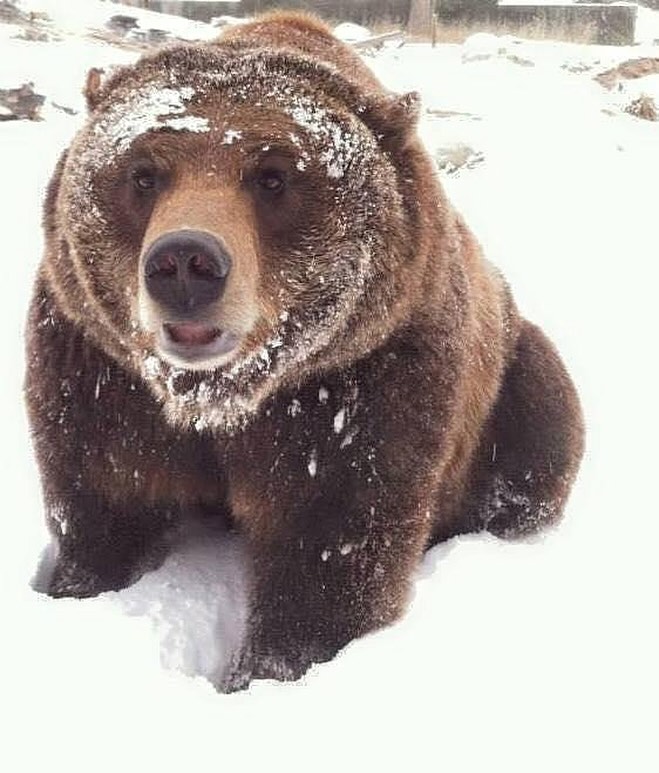- Understanding the impact of extreme cold on zoo operations and animal welfare.
- Zoo management strategies for dealing with severe weather conditions.
- The role of zoos in wildlife conservation amidst environmental challenges.
- Insights into ZooMontana’s specific policies and practices regarding weather-related closures.
- The importance of community engagement and public communication during unexpected zoo closures.
ZooMontana is a home not just for fascinating wildlife, but also for a dedicated team ensuring animal welfare. Occasional closures due to extreme weather, such as the one on February 10th, are pivotal decisions rooted in animal care and personnel safety. Understanding these closures requires insight into the multifaceted challenges faced by zoos, which include maintaining animal health and managing operational logistics during adverse weather conditions.
Extreme cold can significantly disrupt zoo operations, necessitating temporary closures for both the animals’ well-being and visitor safety. Animals, particularly exotic species not adapted to frigid temperatures, require enhanced care in cold climates. Zoos like ZooMontana must implement winter protocols that include temperature-controlled environments and modified feeding practices. For instance, tropical species housed in outdoor enclosures may need to be moved indoors, where heating systems maintain suitable temperatures. Moreover, zookeepers need to increase caloric intake for some animals to help them generate additional body heat.
Operationally, keeping the zoo’s pathways clear and safe during snowstorms or ice can be labor-intensive, often requiring the deployment of maintenance staff well before opening hours. Thus, temporary closures during extreme cold periods are necessary to address these logistical hurdles, ultimately ensuring the safety of both habitats and humans. Such decisions reflect the zoo’s commitment to maintaining high standards of welfare and safety, reinforcing its role as a responsible steward of animal care.
Weather-related challenges present significant management issues in a zoo setting. Effective strategies for dealing with extreme weather include the development of detailed emergency protocols. These plans involve staff training in emergency preparedness, with regular drills to simulate various scenarios like power outages or emergency evacuations. Within ZooMontana, the emphasis is placed on communication, with clear hierarchies for decision-making to facilitate swift and effective responses during weather crises.
Furthermore, the zoo’s infrastructure is designed to mitigate weather impacts. Examples include resilient building structures capable of withstanding heavy snow or wind and flexible HVAC systems able to maintain stable indoor climates. By investing in robust infrastructure, ZooMontana not only protects its wildlife but also extends the lifespan of its facilities, reinforcing its commitment to sustainable and efficient zoo management.
Zoos play an increasingly critical role in wildlife conservation, particularly as they face frequent extreme weather linked to climate change. Maintaining biodiversity and supporting endangered species are mission-critical objectives for institutions like ZooMontana. These goals are met through captive breeding programs and collaborative efforts with global conservation agencies. In the face of environmental challenges, the data and research facilitated by zoos provide valuable insights into species’ adaptability and resilience.
ZooMontana actively participates in conservation initiatives that extend beyond its borders. These programs focus on habitat restoration and species reintroduction in the wild, predicated on the understanding that zoos can be living laboratories for studying animal adaptation to climate variance. By sharing research findings with the broader scientific community, ZooMontana and similar institutions play a pivotal role in shaping conservation strategies that transcend immediate, local contexts.
When unexpected weather leads to closures, clear and timely communication with the public becomes key. For ZooMontana, conveying information such as the February 10th closure allows visitors to adjust their plans accordingly while underscoring the zoo’s prioritization of safety. Online platforms and social media are leveraged to provide real-time updates and engage the community, creating a transparent dialogue between the zoo and its patrons.
This presence on digital platforms also serves educational purposes, offering the public a glimpse into the challenges and responsibilities of zoo management. By explaining the necessity of closures and detailing animal care practices, ZooMontana fosters a deeper public appreciation for its efforts. Consequently, this strengthens the connection between the zoo and its community, further enhancing visitor loyalty and support for ongoing conservation projects.
In the broader zoo ecosystem, community support is indispensable, particularly during weather-related disruptions. Visitors contribute not only to zoo revenues but also to outreach efforts aimed at raising awareness for conservation causes. Thus, maintaining robust community relations, particularly through effective communication of closures like February 10th, influences both financial stability and public advocacy for the zoo’s mission.
Navigating sudden weather closures involves intricate decisions that balance animal welfare, public safety, and operational feasibility. Institutions like ZooMontana serve a multifaceted role in society, extending beyond merely offering wildlife spectacles to playing an integral part in conservation education. By exemplifying best practices through their response to extreme weather, zoos can set benchmarks for responsible environmental stewardship while advocating for future-ready resilience amid changing climates.
This comprehensive approach to zoo management during extreme weather events not only enhances safety and awareness but aligns with broader societal efforts to tackle climate-induced challenges. As such, ZooMontana’s thoughtful handling of extreme cold days speaks to its ongoing commitment to fostering both local and global conservation efforts.
*****
Source Description
Due to the extreme cold, ZooMontana will remain CLOSED on Monday, February 10th. We will reopen on Tuesday the 11th at 10am. Sorry for the inconvenience! Stay warm!


